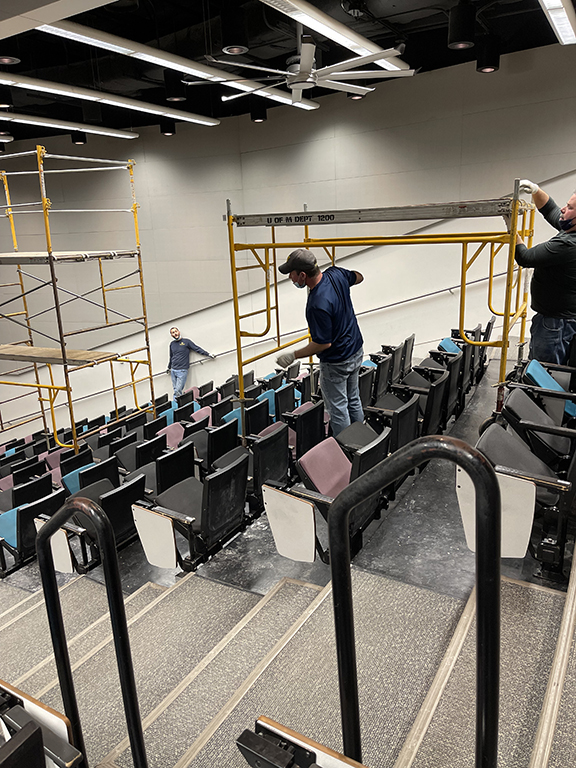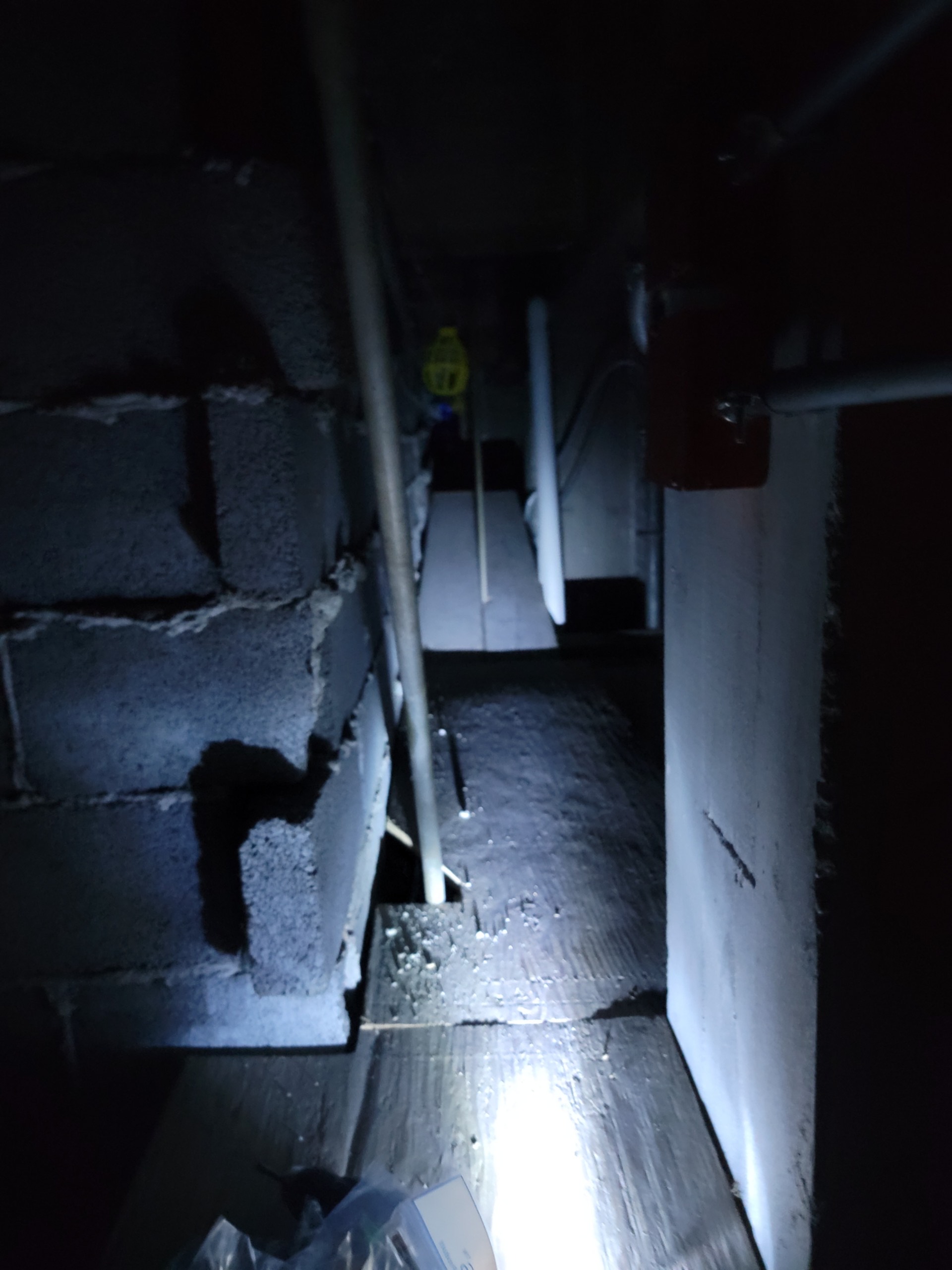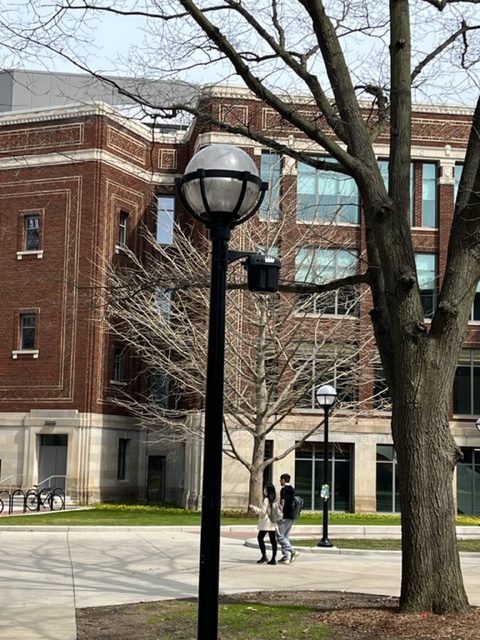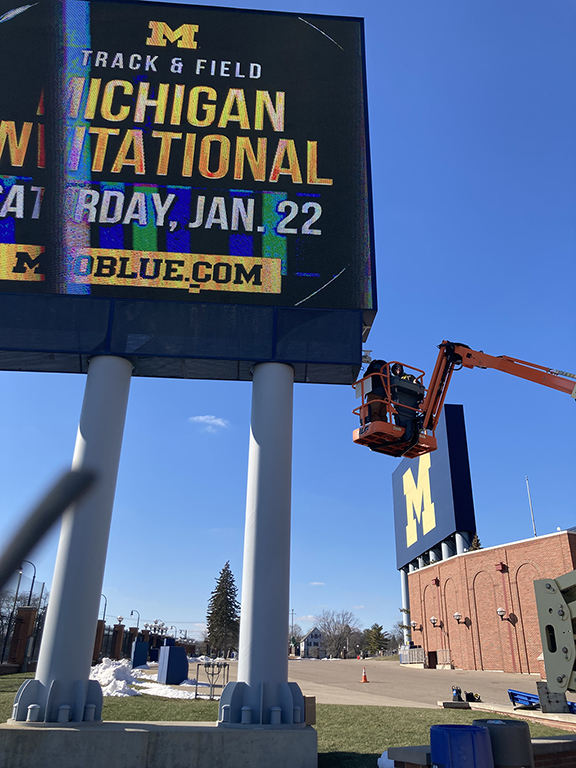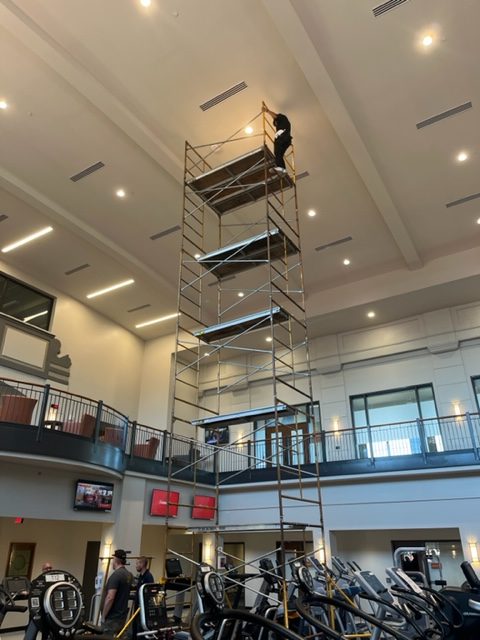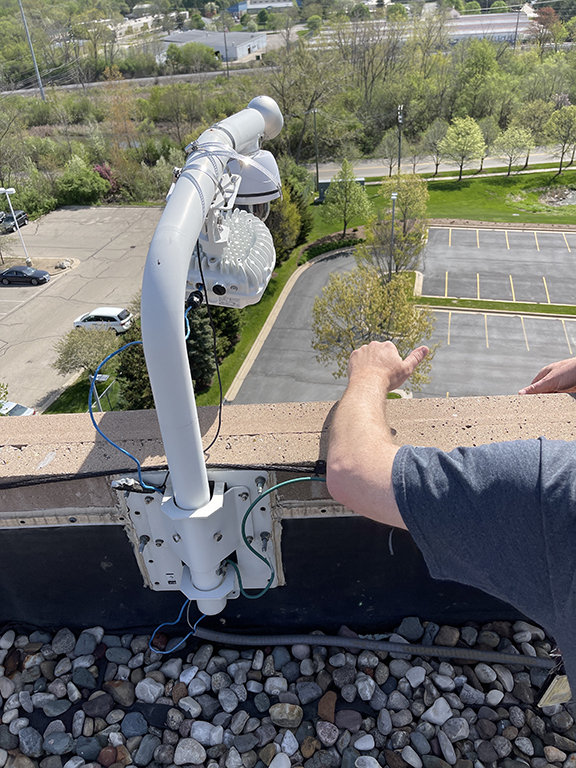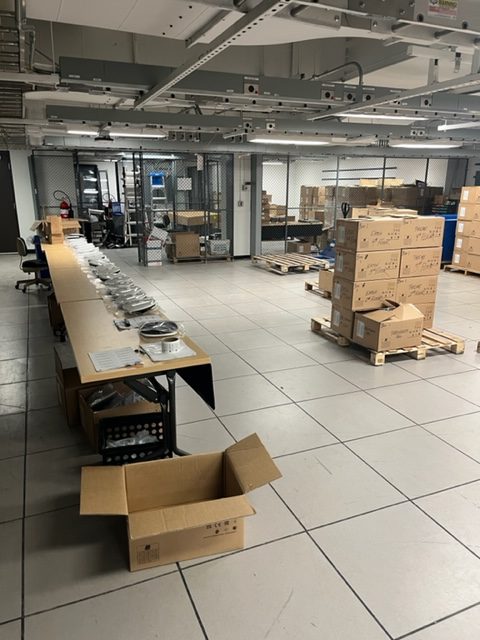The University of Michigan is the first university in the nation to offer WiFi 6E to students, faculty, staff, and campus visitors on the Ann Arbor and Dearborn campuses. Over the past eight months, the WiFi Upgrade Project project team replaced more than 16,000 wireless access points (APs) in over 225 indoor and outdoor locations despite a global chip shortage and supply chain disruptions.
The ITS project team worked with the contractors to make the best use of time while waiting for hardware to arrive during the chip shortage. The first step in the upgrade process, a pre-site survey, was completed for more than 99 percent of the APs due for replacement. The survey was necessary to benchmark the performance of the current network and an opportunity to identify building-specific upgrade considerations.
When the hardware arrived and it was time to begin the upgrades, the project team partnered with IT leadership from every school, college, and unit, and facilities managers from every building to minimize the impact on academics and business. The teams reduced the impact on students, faculty, and staff by continuing to work when fewer people were in campus buildings, such as on weekends and during spring break. Any buildings that needed to be upgraded during business hours experienced minimal disruptions. On-site outages lasted 10 minutes or less in the area immediately being worked on. New hardware was engineered to automatically configure to provide network connectivity quickly after the hardware was swapped out.
The APs are strategically placed around the Ann Arbor and Dearborn campuses to provide areas where someone may study or work with consistent, pervasive coverage. The equipment is secured to 35-foot ceilings over tiered classrooms, tucked in attics and behind walls to provide access in historic buildings, and hidden in light posts and outdoor signs. WiFi 6E will not only give our community the flexibility to work anywhere on campus with a wireless connection, but also allow the university to reduce the number of wired ports and reduce its electronic waste and carbon footprint.
Photos from the WiFi Upgrade
Photos courtesy of the Infrastructure project managers: Michele Corcoran, Mike Clancy, and Clark Smith.
The new WiFi 6E network delivers the performance required for all devices to access an HD video stream even in densely populated settings, such as classrooms and auditoriums. The increased performance will significantly reduce lag experienced when using real-time applications, including video conferencing and video games. Most devices will no longer need a wired connection after the upgrade, allowing ITS to reduce the number of wired ports and reduce our electronic waste and carbon footprint.
With support from the President’s Office, Provost’s Office, and other key leaders, ITS secured capital funds for the project. An overall shorter project duration was one of the factors that reduced the overall cost to upgrade the network. Additionally, UM-Dearborn funded upgrades to all indoor and outdoor Wi-Fi across its campus.

